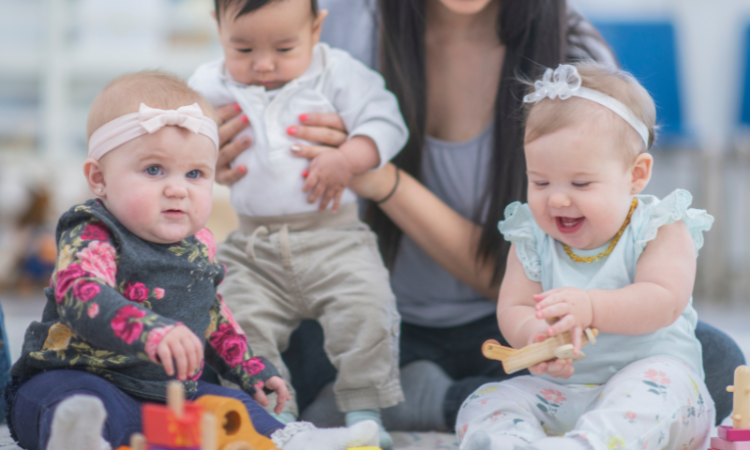
Selecting the appropriate daycare centre for your infant is a critical choice that influences your child’s growth and your mental well-being.
Singapore presents a range of alternatives for infant daycare, each presenting distinct characteristics and factors worth noting.
Explore the details of these care institutions, assisting parents in making well-informed choices before enrolling their little ones in infant daycare in Singapore.
Understanding Infant Care Age Requirements in Singapore
Before exploring different infant daycare options, it’s necessary to first understand the infant care age requirements and regulations in Singapore. Infant care centres typically accept children from 2 to 18 months old. This age range is critical as it covers the early developmental stages of a child’s life, making it essential to choose a facility equipped to handle the specific needs of infants.
Key Factors to Consider When Choosing an Infant Daycare
- Location and Accessibility
- Proximity to home or workplace is a significant factor. It ensures convenience for daily drop-offs and pick-ups, reducing stress and travel time for parents and children.
- Consider the centre’s accessibility in terms of public transport and parking availability.
- Reputation and Reviews
- Research the reputation of the daycare centres through online reviews and parent testimonials. Websites and social media platforms can provide insights into other parents’ experiences.
- Visit forums and parenting groups to get personal recommendations and advice.
- Staff Qualifications and Ratios
- Verify the qualifications and experience of the caregivers. Trained and certified staff are vital for providing quality care and ensuring your infant’s safety.
- Check the caregiver-to-child ratio. Lower ratios ensure more individual attention and better care.
- Facilities and Environment
- Inspect the cleanliness, safety, and overall environment of the daycare centre. Ensure that it is child-friendly, with age-appropriate toys and equipment.
- Look for secure entrances, fire safety measures, and hygienic facilities.
- Curriculum and Activities
- Understand the daycare’s curriculum and daily activities. A structured program with sensory play, music, and physical activities can promote healthy development.
- Ensure that activities are appropriate for your child’s age and development stage.
The Role of Private Preschools in Early Childhood Education
Private preschools in Singapore often offer extended infant care services. These institutions provide a seamless transition from infant care to preschool, ensuring continuity in your child’s early education.
- Comprehensive Programs
- Private preschools typically offer comprehensive programs that integrate early learning with care. This holistic approach supports cognitive, emotional, and social development from infancy through preschool.
- Enhanced Resources
- These schools often have better resources, including specialised staff, advanced learning materials, and enriched environments conducive to early education.
- Customised Care
- Private preschools may provide more customised care plans tailored to each child’s unique needs and developmental pace, ensuring personalised attention and growth.
Cost Considerations and Financial Planning
Infant daycare and private preschool fees can be substantial. It’s necessary to consider the financial implications and plan accordingly.
- Understanding Fees
- Gather detailed information about the fees, including enrollment, monthly tuition, and any additional costs for activities or materials.
- Compare the costs across different centres to find one that fits your budget without compromising quality.
- Government Subsidies
- Explore available government subsidies and financial assistance programs. Working mothers in Singapore are eligible for subsidies that can significantly reduce the cost of infant daycare.
- Check eligibility criteria and application procedures to benefit from these subsidies.
- Long-term Financial Planning
- Plan for the long term by considering the transition from infant daycare to preschool and beyond. Ensure your financial plans can accommodate your child’s continuous education and care needs.
Transitioning to a Childcare School in Singapore
As your child grows, transitioning from infant daycare to a childcare school in Singapore is the next step. This transition requires careful planning and consideration.
- Timing the Transition
- Identify the appropriate time to transition your child based on their developmental readiness and the age requirements of the childcare school.
- Preparing Your Child
- Gradually introduce your child to the new environment by visiting the school together, meeting the teachers, and participating in orientation activities.
- Communicate with your child about the transition to ease anxiety and build excitement.
- Continuous Monitoring
- Once enrolled, continuously monitor your child’s adaptation to the new environment. Maintain open communication with the caregivers and teachers to ensure a smooth transition and address any concerns promptly.
Conclusion
Selecting the appropriate infant daycare in Singapore is a critical choice that establishes the groundwork for your child’s future education and growth. Through thoughtful consideration of the factors and meticulous planning, parents can make well-informed decisions that promote their child’s development and overall well-being.
Visit Odyssey – The Global Preschool to provide a nurturing and stimulating environment for your little one.



